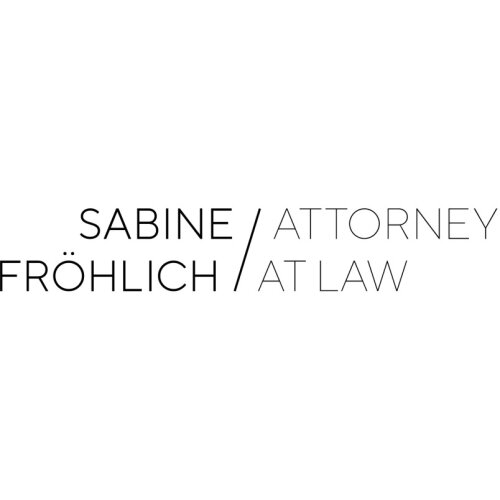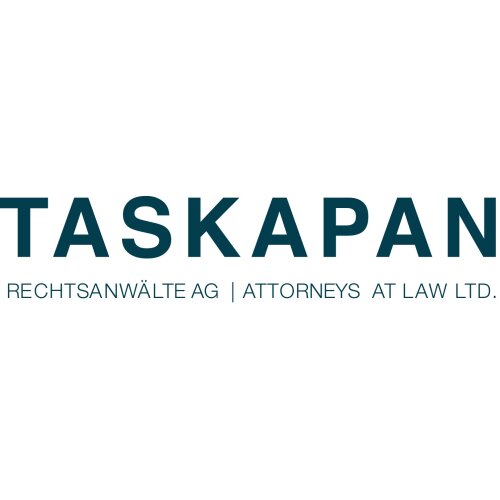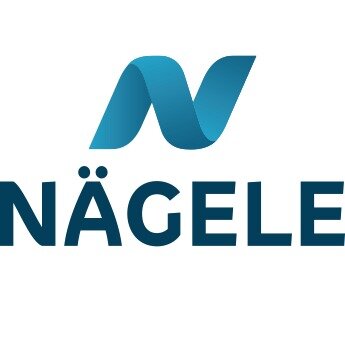Best Public-Private Partnerships (PPP) Lawyers in Vaduz
Share your needs with us, get contacted by law firms.
Free. Takes 2 min.
List of the best lawyers in Vaduz, Liechtenstein
About Public-Private Partnerships (PPP) Law in Vaduz, Liechtenstein
Public-Private Partnerships (PPP) are contractual arrangements that allow public sector bodies and private sector companies to collaborate on large-scale projects, especially in areas such as infrastructure, public services, and urban development. In Vaduz, Liechtenstein, PPPs are seen as a way to leverage the expertise, capital, and efficiency of private partners, while still fulfilling government objectives and ensuring public interest. The legal framework for PPP in Vaduz reflects European standards, focusing on transparency, fair competition, risk allocation, and long-term sustainability. The government encourages PPPs for projects such as transportation infrastructure, healthcare facilities, educational institutions, and public utilities.
Why You May Need a Lawyer
Engaging in a Public-Private Partnership in Vaduz can be complex due to the interplay between public regulations and private interests. A lawyer with experience in PPP can help with:
- Drafting and negotiating PPP contracts
- Understanding bidding and procurement procedures
- Assessing regulatory compliance at local and national levels
- Managing risk and liability distribution between parties
- Resolving disputes arising from PPP arrangements
- Advising on financing and investment structures
- Navigating multi-jurisdictional issues, especially for foreign investors
- Ensuring the PPP aligns with public policy and sector-specific laws
Professional legal advice can help both public and private entities avoid costly mistakes and ensure the PPP project succeeds.
Local Laws Overview
Liechtenstein has adopted a regulatory environment that promotes public-private collaborations while maintaining strong governance. Key aspects include:
- Procurement Law: Public tenders must follow the principles of transparency, non-discrimination, and competition, complying with both national law and relevant EU directives that Liechtenstein has incorporated through the EEA Agreement.
- Contractual Freedom: Parties enjoy significant flexibility in drafting PPP agreements, provided they respect public order and mandatory rules.
- Supervisory Authorities: Various government agencies, such as the Office for Public Works and the Office for Construction and Infrastructure, oversee PPP approvals, implementation, and compliance.
- Risk Allocation: Regulations require clear allocation of responsibilities and risks between the public and private parties.
- Dispute Resolution: PPP contracts typically include provisions for mediation, arbitration, or litigation in Liechtenstein courts.
- Environmental and Social Standards: Projects must meet environmental regulations and consider social impact, especially if they involve public infrastructure.
Understanding these local legal requirements is crucial for anyone looking to participate in a PPP project in Vaduz.
Frequently Asked Questions
What is a Public-Private Partnership (PPP)?
A Public-Private Partnership is a long-term cooperation between a government entity and a private company to deliver a public service or project, sharing both risks and rewards.
Are PPPs common in Vaduz, Liechtenstein?
While PPPs are less prevalent in Liechtenstein compared to larger countries, they are increasingly used for infrastructure and public service projects due to their effectiveness in leveraging private sector expertise.
What types of projects are usually developed through PPPs in Vaduz?
Typical PPP projects include infrastructure such as roads, bridges, public buildings, utilities, and digital services.
Do I need to participate in a public tender to engage in a PPP?
Yes, most PPP projects require an open and competitive public tender process, ensuring transparency and equal opportunity for qualifying bidders.
How are risks allocated in a PPP agreement?
Risks are typically shared between the public and private partners, with each party taking on the risks they are best equipped to manage. This can include financial, construction, operational, or regulatory risks.
What legal steps are involved in setting up a PPP in Vaduz?
Legal steps usually include pre-qualification, bidding, negotiation of contract terms, approval from relevant authorities, and ongoing compliance with applicable laws and regulations.
What happens if a dispute arises during a PPP project?
Parties may resolve disputes through negotiation, mediation, arbitration, or litigation, based on the mechanisms set out in the PPP agreement. Liechtenstein courts or arbitration panels are commonly used.
Are foreign companies allowed to participate in PPPs in Vaduz?
Yes, foreign companies can participate in PPP tenders, subject to local laws and, in some cases, compliance with specific requirements for foreign investment or registration.
How does financing work in a PPP structure?
Financing is often provided by the private sector partner but may also involve public funds, bank loans, or international investment depending on the structure of the agreement and the scale of the project.
What local authority oversees PPP projects in Vaduz?
PPP projects are typically overseen by the Office for Public Works along with other relevant government departments, depending on the sector and project scope.
Additional Resources
If you need more information on PPPs in Vaduz, the following resources may be helpful:
- Office for Public Works (Amt für Bau und Infrastruktur) - Responsible for infrastructure and public works projects
- Liechtenstein Chamber of Commerce and Industry (Industrie- und Handelskammer) - Can provide business and legal information for private partners
- Liechtenstein Investment and Development Agency (LIDA) - For information about investment opportunities and legal requirements for foreign companies
- Legal databases such as Liechtensteinische Gesetzessammlung (LILEX) for access to relevant laws and regulations
- Local law firms specializing in business law and public contracts
Next Steps
If you are considering involvement in a Public-Private Partnership in Vaduz, Liechtenstein, take these steps:
- Conduct initial research to understand the project's feasibility and legal requirements
- Contact a qualified lawyer or law firm in Vaduz with experience in PPP and public procurement law
- Prepare necessary documentation and review your eligibility for PPP involvement, especially if you are a foreign entity
- Engage with relevant public authorities early in the process for guidance on tenders and regulatory compliance
- Seek ongoing legal advice throughout the bidding, negotiation, and implementation stages to ensure your interests are protected
Legally sound PPPs can deliver mutual benefits for both public entities and their private partners in Vaduz. Taking the correct legal steps at the outset will help safeguard your interests and contribute to a successful partnership.
Lawzana helps you find the best lawyers and law firms in Vaduz through a curated and pre-screened list of qualified legal professionals. Our platform offers rankings and detailed profiles of attorneys and law firms, allowing you to compare based on practice areas, including Public-Private Partnerships (PPP), experience, and client feedback.
Each profile includes a description of the firm's areas of practice, client reviews, team members and partners, year of establishment, spoken languages, office locations, contact information, social media presence, and any published articles or resources. Most firms on our platform speak English and are experienced in both local and international legal matters.
Get a quote from top-rated law firms in Vaduz, Liechtenstein — quickly, securely, and without unnecessary hassle.
Disclaimer:
The information provided on this page is for general informational purposes only and does not constitute legal advice. While we strive to ensure the accuracy and relevance of the content, legal information may change over time, and interpretations of the law can vary. You should always consult with a qualified legal professional for advice specific to your situation.
We disclaim all liability for actions taken or not taken based on the content of this page. If you believe any information is incorrect or outdated, please contact us, and we will review and update it where appropriate.
















